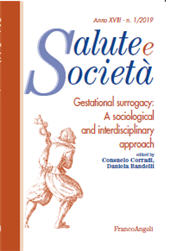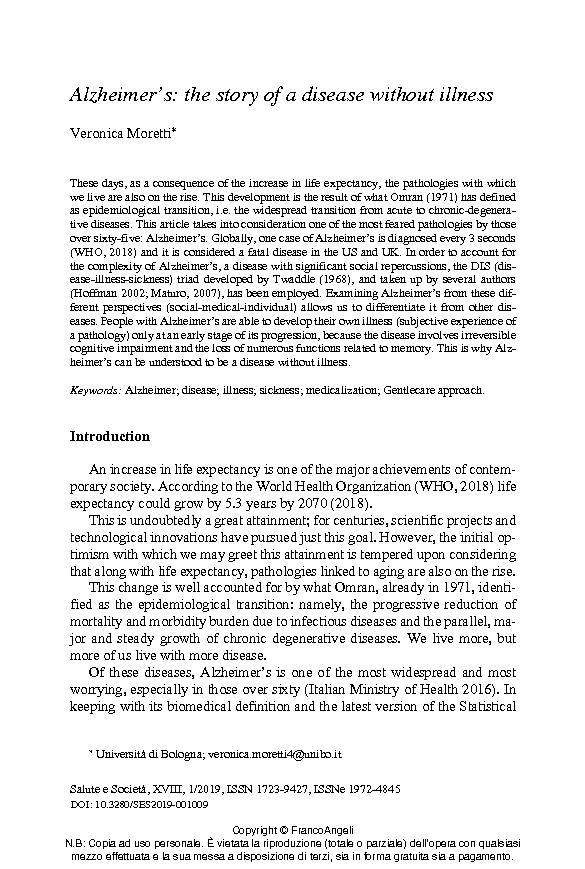Alzheimer's : the story of a disease without illness
134-149 p.
These days, as a consequence of the increase in life expectancy, the pathologies with which we live are also on the rise. This development is the result of what Omran (1971) has defined as epidemiological transition, i.e. the widespread transition from acute to chronic-degenerative diseases. This article takes into consideration one of the most feared pathologies by those over sixty-five: Alzheimer's. Globally, one case of Alzheimer's is diagnosed every 3 seconds (WHO, 2018) and it is considered a fatal disease in the US and UK. In order to account for the complexity of Alzheimer's, a disease with significant social repercussions, the DIS (disease-illness-sickness) triad developed by Twaddle (1968), and taken up by several authors (Hoffman 2002; Maturo, 2007), has been employed. Examining Alzheimer's from these different perspectives (social-medical-individual) allows us to differentiate it from other diseases.
People with Alzheimer's are able to develop their own illness (subjective experience of a pathology) only at an early stage of its progression, because the disease involves irreversible cognitive impairment and the loss of numerous functions related to memory. This is why Alzheimer's can be understood to be a disease without illness. [Publisher's text].
Is part of
Salute e società : XVIII, 1, 2019-
Articles from the same issue (available individually)
-
Information
ISSN: 1972-4845
DISCIPLINES
KEYWORDS
- Alzheimer, disease, illness, sickness, medicalization, Gentlecare approach



